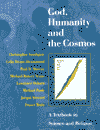The Words ‘Science’ and ‘Theology’ in Popular Usage‘Science’ and ‘scientific’ are frequently appealed to as a means of bestowing respectability on a subject, bringing with them connotations of rationality, reliability and utility. How often in the media do we encounter the authoritative ‘Science tells us...’? Interviewees when pressed riposte with ‘We need to be scientific about this...’ and advertisers attract us with such phrases as ‘The appliance of science’, ‘The science diet’ and all manner of goods which come with a supposedly scientific seal of approval. In contrast ‘theology’ and ‘theological’ have, for some at least, taken the place of the once popular ‘metaphysical abstraction’ as the standard terms of derogation: ‘Theological nonsense’ cries an M.P. across the floor of the House, implying irrationality, confusion and irrelevance. The theological problems occasioned by the rise of science extend then, it would seem, beyond particular disputes to a more pervasive sense that science stands as the measure of all valid knowledge in such a manner as calls into question the notion that theology is a route to truth. This belief can take many forms:
in short, science seeks after objective truth whereas theology deals only in subjective meaning. These assumptions can be as untrue to the
reality of science as to the practice of theology.
Email
link | Feedback | Contributed by: Dr. Christopher Southgate
|






